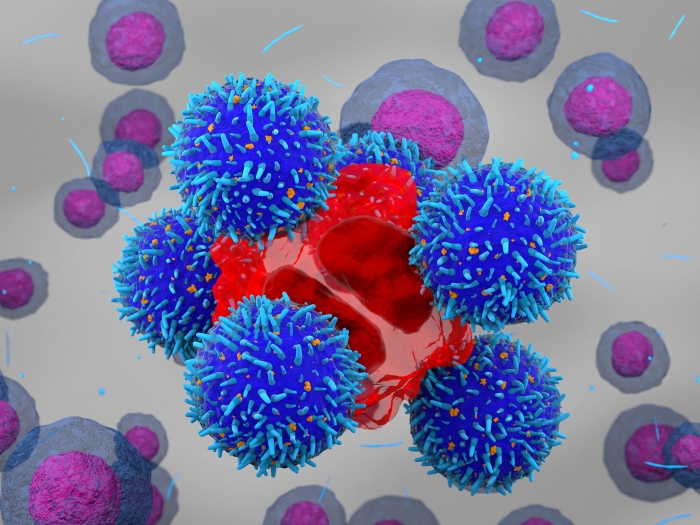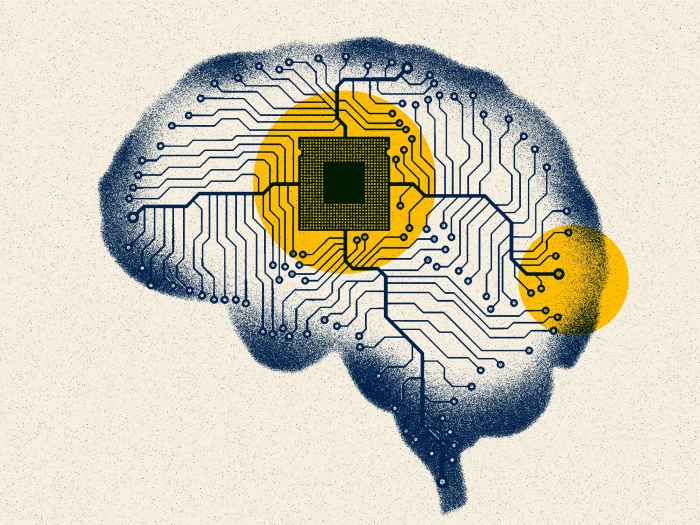Basic research is getting closer to potential therapeutic targets
5:00 AM
Author |

Polycystic ovarian syndrome, or PCOS, can cause a range of symptoms, including disrupted menstrual cycles, abdominal obesity, cardiovascular disease, and type 2 diabetes. It’s also one of the biggest causes of infertility — in fact, many people don’t discover they have the condition until they try to become pregnant.
One of the hallmarks of PCOS are elevated levels of hormones produced by the ovaries called androgens. Androgens play important roles in puberty and reproduction in people with ovaries and people with testes.
Researchers are trying to understand why PCOS develops and how androgens lead to negative symptoms. A recent study led by Alexandra Cara, Ph.D., a former graduate student in the U-M Medical School’s Department of Molecular and Integrative Physiology, used mouse models to take a closer look at hormonal receptors.
“If you expose mice to androgens during two critical windows, before birth or around puberty, they will go on to develop different symptoms of PCOS,” said Cara, now a postdoctoral research fellow at the University of California, Los Angeles. Some scientists believe prenatal exposure to androgens or endocrine-disrupting chemicals may lead to PCOS in humans as well.
The study, published in the journal Endocrinology, builds on earlier work in which researchers deleted the androgen receptors (which as their name suggests bind to androgens) in mice. They then exposed the animals to excess androgens before they were born. Without androgen receptors, the mice were protected from developing some symptoms of PCOS.
But, explains Cara, androgen receptors are located throughout the body, including the brain, and deleting them all still left the open question of which receptors were implicated for PCOS development.
Cara hypothesized that another type of receptor called the leptin receptor, studied extensively by her principal investigator Carol Elias, Ph.D., may be involved. Previous work found androgen receptors are highly expressed in certain populations of leptin receptor-expressing neurons in the hypothalamus —part of the brain that controls the release of hormones. Leptin, a hormone produced by fat tissue, is involved in the regulation of appetite and metabolism.
“We know that a subpopulation of people with PCOS are more likely to have diabetes and visceral obesity. We thought leptin could be a good link between metabolism and reproduction and might be influenced by androgen receptor-mediated androgen signaling,” she said.
To test this hypothesis, the team exposed mice that had androgen receptors deleted from leptin receptor neurons to excess androgens prenatally. These mice had improvement in some PCOS symptoms including regulation of their estrous cycles (analogous to a menstrual cycle in humans.)
Cara hopes follow up studies will explore androgen exposure around puberty, as this type of model tends to mimic the weight gain found in some people with PCOS.
“I hope these mouse studies can find better therapeutic targets for people with PCOS,” Cara said. “The first intervention offered is lifestyle modification, like diet and exercise, but as anyone with the condition would tell you, that doesn’t help everything.”
Even with body weight regulation and restoration of menstrual cycles, people can still struggle with getting pregnant. And while anti-androgen drugs can block the hormones in the body, you can’t take them when trying to conceive, she noted.
“It’s hard to have a perfect model of PCOS, but this is the closest we’ve gotten so far,” said Elias. “Once we have a good idea what is causing PCOS and how it develops, things get easier to target.”
Paper cited: “Deletion of Androgen Receptor in LepRb Cells Improves Estrous Cycles in Prenatally Androgenized Mice,” Endocrinology. DOI: 10.1210/endocr/bqad015
Additional authors: Laura L Burger, Bethany G Beekly, Susan J Allen, Emily L Henson, Richard J Auchus, Martin G Myers, Jr, and Suzanne M Moenter.

Explore a variety of health care news & stories by visiting the Health Lab home page for more articles.

Department of Communication at Michigan Medicine
Want top health & research news weekly? Sign up for Health Lab’s newsletters today!





